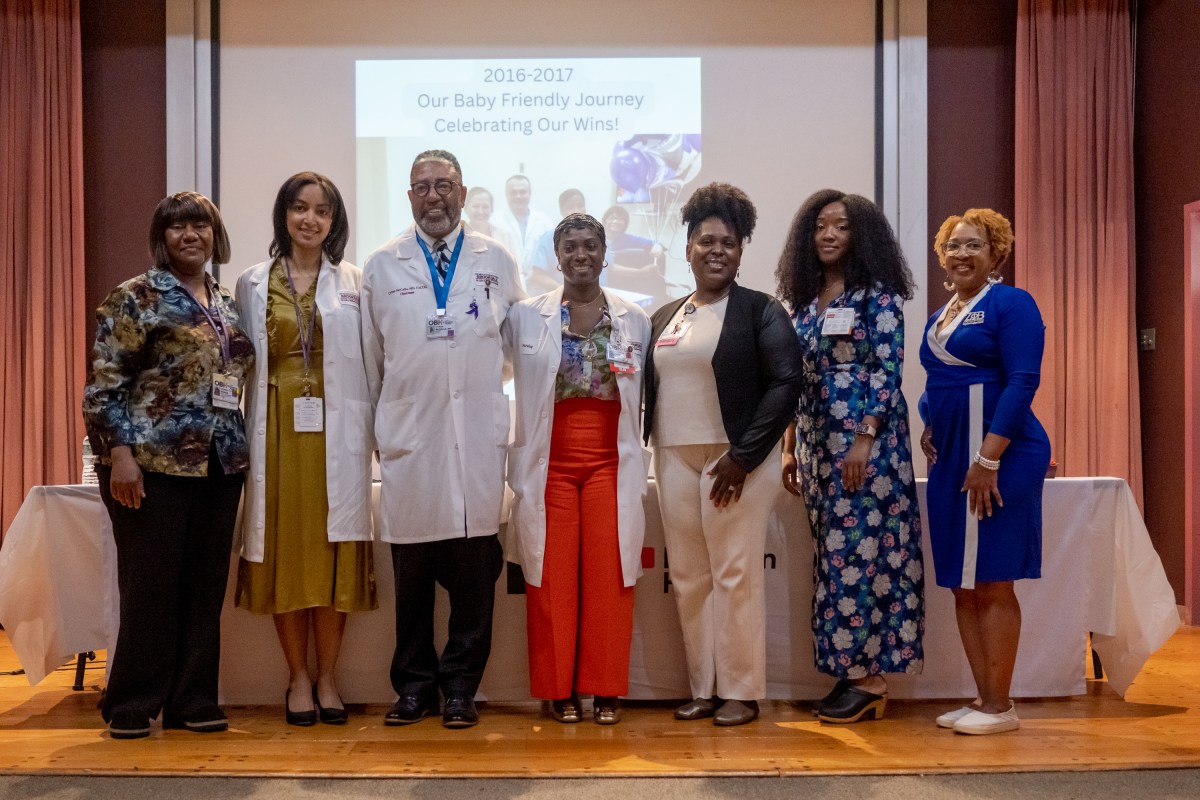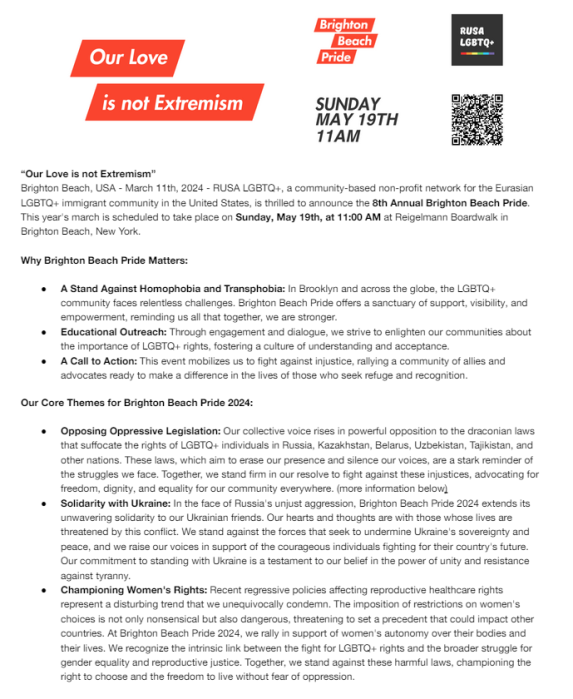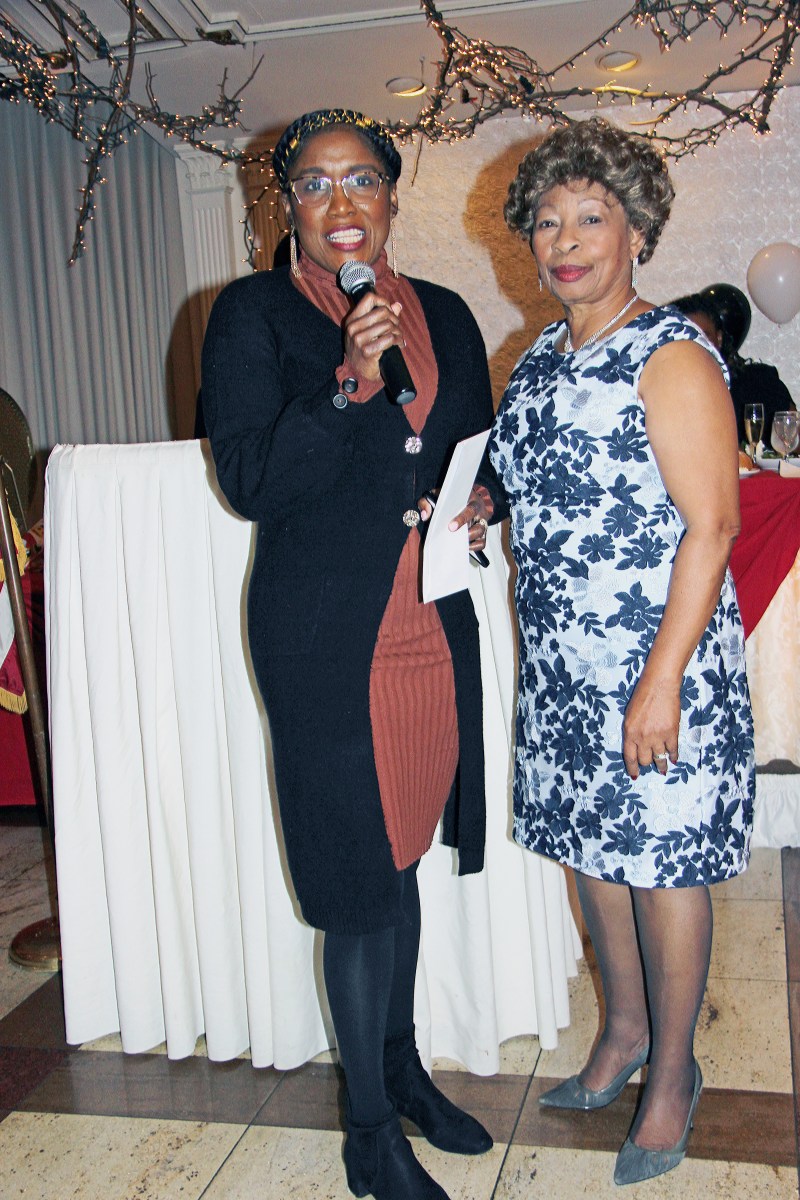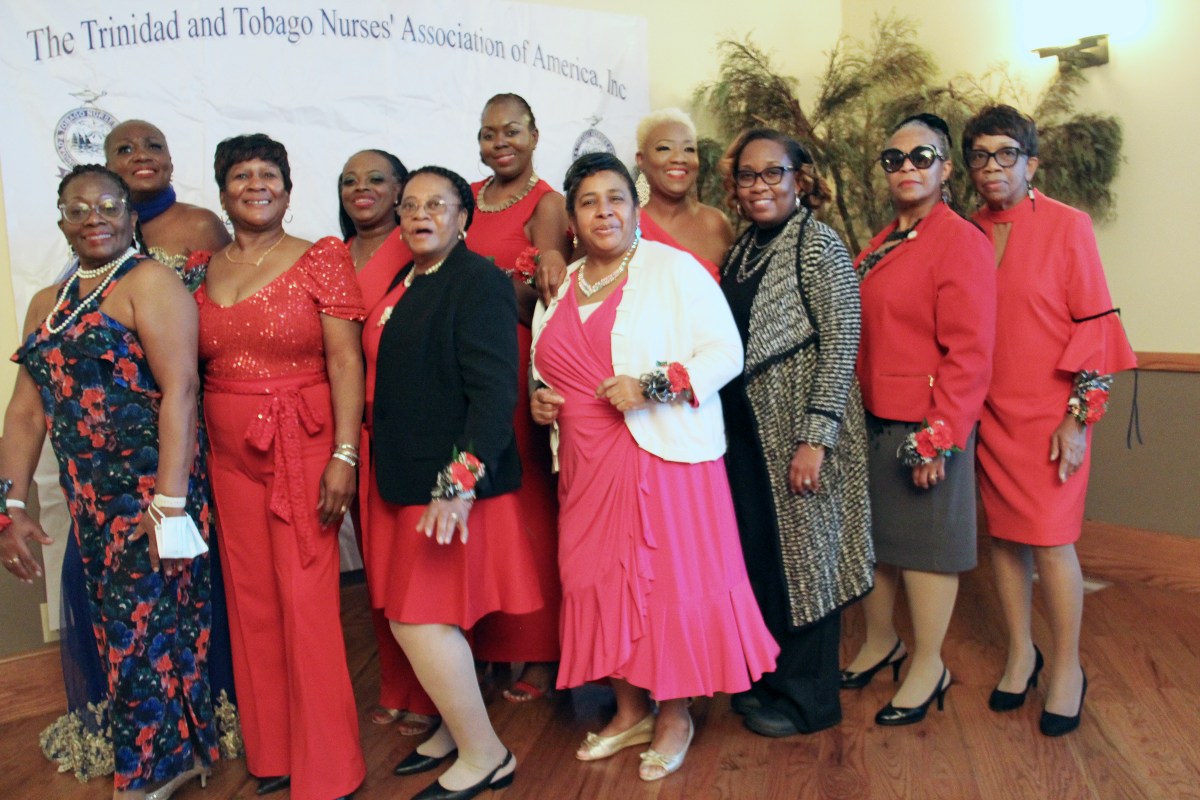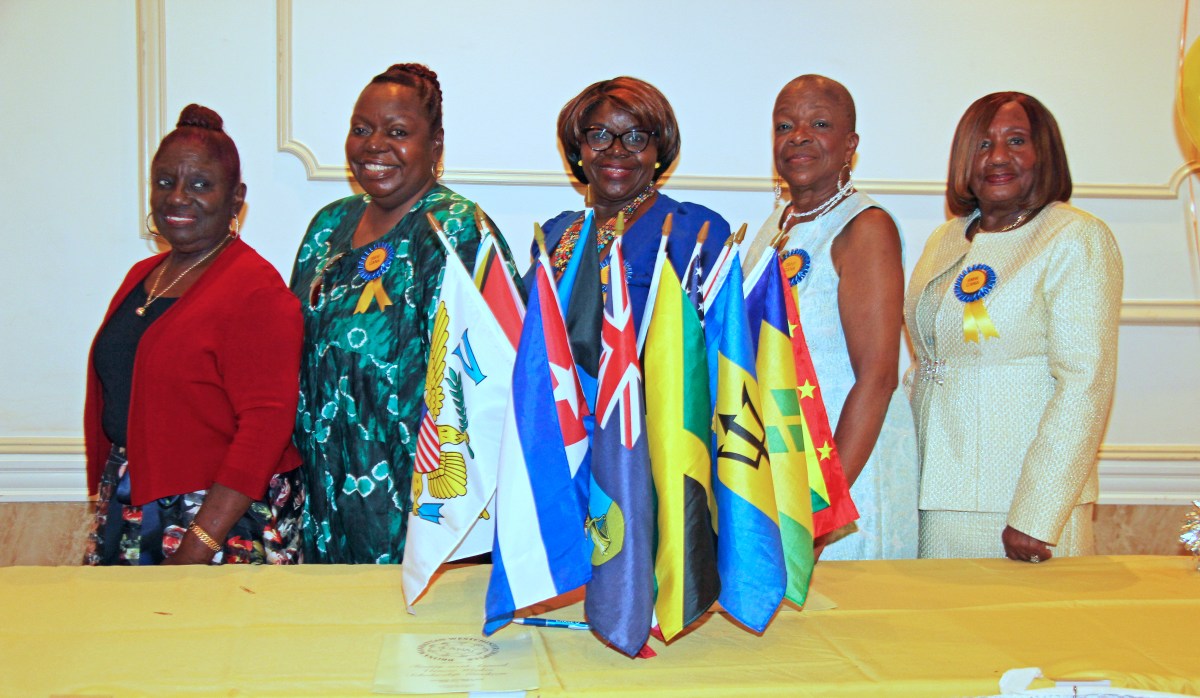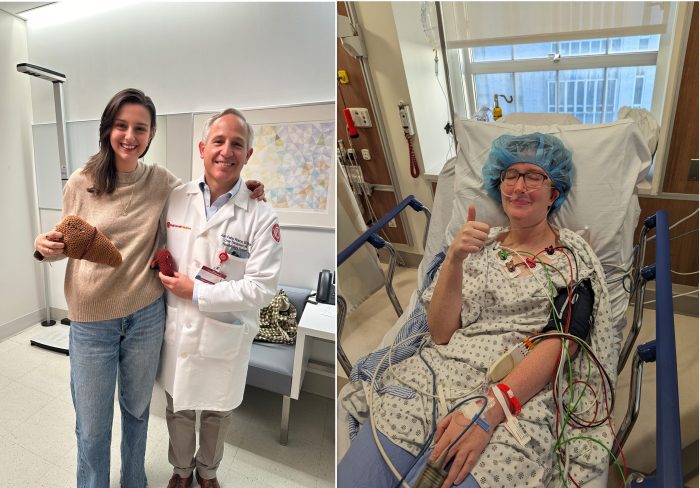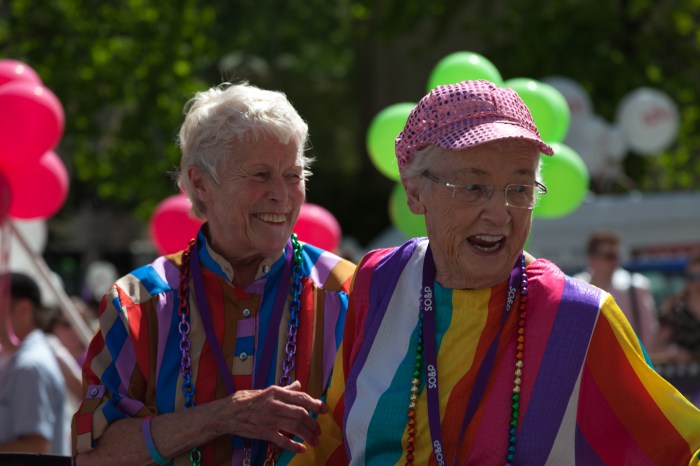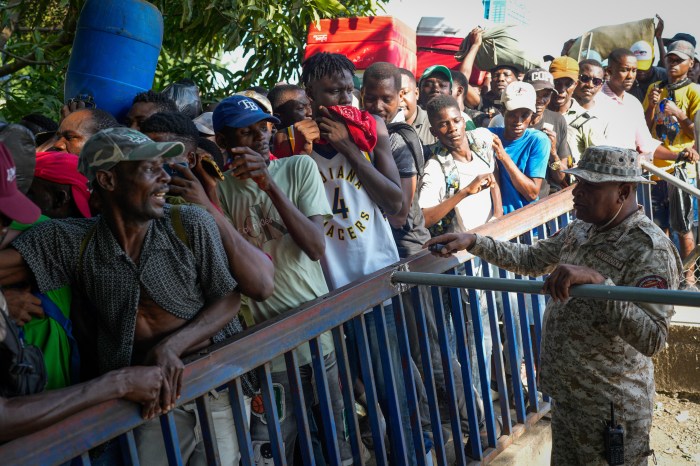One Brooklyn Health organized a panel at Brookdale Hospital in Brownsville on May 1 to discuss disparities in Black maternal health care.
Panelists included Dr. Cyrus McCalla, chair of obstetrics and women’s health and a maternal-fetal medicine specialist at Brookdale; family resource specialist Joann Suggs; lactation consultant Ashley Orenshteyn; OB-GYN Dr. Cadesa Ramarrack; midwife Jaime Celestin-Edwards; and Sharon Martin, nurse manager of the mother-baby labor and delivery floor.
Participants not only discussed the challenges that Black women face when it comes to maternal health care, but also offered advice and resources to empower and educate pregnant women of color.
One Brooklyn Health has introduced several programs to address maternal health disparities, such as Centering Pregnancy, which pairs eight to 12 moms with similar due dates, creating a “buddy system” for support, and Healthy Families, which offers home-based services to support expectant families and new parents. Another program, HealthySteps, provides early childhood development support to families in the pediatric primary care office.
Brookdale Hospital also has a level-three neonatal intensive care unit (ICU), where premature babies are cared for around the clock by board-certified neonatologists.
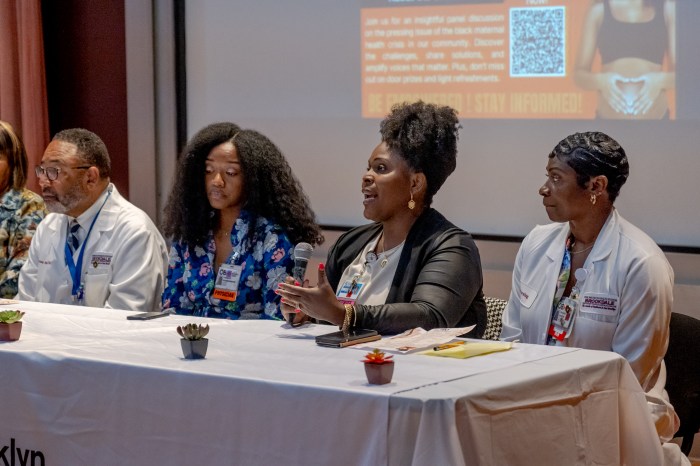
Panelists then took the opportunity to highlight the different ways Brookdale Hospital creates a safer birthing experience for Black and brown women.
More than half of the babies born at Brookdale are delivered with the support of a midwife, Dr. McCalla told the crowd.
“A number of studies have shown that care with midwives decreases mortality, decreases morbidity, decreases Caesarean section rate,” he said. “My goal is to get our midwives out in the community seeing our patients, bonding with our patients, developing that relationship which not only will help in terms of maternal morbidity and mortality, but also improve the health of the family, the mothers, and their children.”
It also helps to have specialists on board for high-risk pregnancies, Dr. McCalla said. “That’s where I put on my high-risk OB hat. It’s very important that as part of any organization, you have individuals who are capable of managing those serious cases.”
Celestin-Edwards, one of the four midwives at the Centering Pregnancy program, said meeting patients at “their level” and building a close relationship is important. Besides providing prenatal care, the midwives also direct their patients to resources like General Educational Development (GED) and job programs.
“We try to help them in whatever areas they might be lacking so that we can help them out,” Celestin-Edwards said. “We care, and we want [our patients] to be better tomorrow than they are today.”
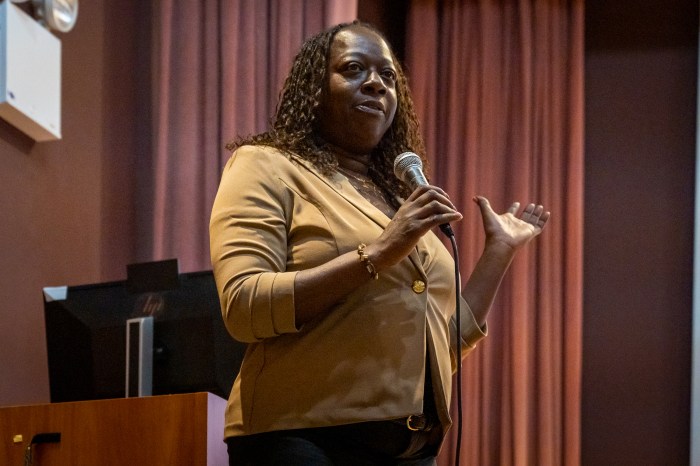
For her part, Suggs enrolls expecting moms and dads into the Healthy Families program, which offers home-based services for three and up to five years after the birth of the baby. Specially-trained staff members meet with the family in their home and assess the family situation, after which participants will receive referrals and services tailored to their specific needs and goals.
“It’s free, non judgmental, and it’s a home-visiting service,” Suggs said. “In the fifth year we do a graduation service. Your baby is now five years old, that’s their first graduation you get to witness. But also in that five-year period, the goals that the family may have had for themselves, they have five years of support to achieve these goals. So I tell them the graduation service is for the whole family, not just the children, because the parents as well have now achieved the goals that they need for themselves to have a happy, healthy household.”
Schana Dadd-Smith also spoke about her high-risk pregnancy at age 47 — and her experience at Brookdale Hospital.
“Everything was looked at, every possibility,” she said, describing her prenatal experience at the hospital as “awesome.”
“One, I was over 40, the color of my skin, I checked all the boxes,” Dadd-Smith said. “Everything was checked and [Brookdale Hospital] made sure that I had a safe delivery — both me and the baby.”
Brooklyn Borough Deputy President Reverend Kimberly Council told Brooklyn Paper that Black maternal mortality in New York State, particularly in New York City, remains a “very serious issue.”
Council pointed to the work that Borough President Antonio Reynoso has done to make Black maternal health a priority within his administration.
In his first year in office, Reynoso allocated his entire capital budget of $45 million to create state-of-the-art neonatal units at three public hospitals in Brooklyn and created a maternal mortality task force that meets once a month. Council explained that Reynoso is also pushing for more midwives, looking into mental health care since Brooklyn doesn’t have an emotional respite center, and has partnered with several organizations.
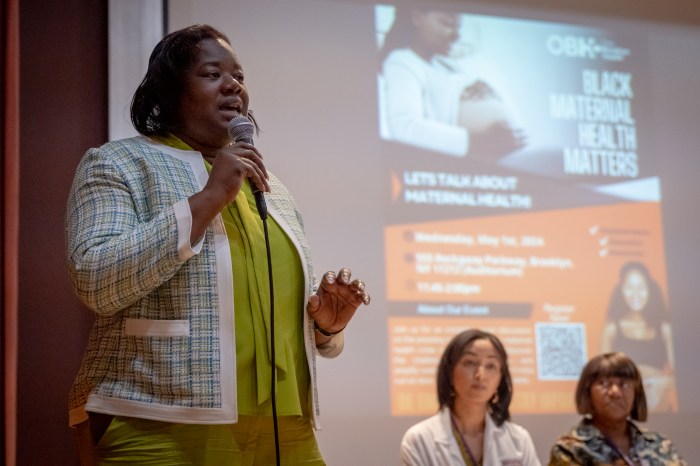
Last month, he and his office hosted a “community baby shower” for expectant mothers in Brownsville.
“It’s about bringing awareness, it’s about education,” Council said. “It’s about having the conversation with women, with medical professionals to make sure that people are doing everything that they can to make sure that Black women [and] Latino women do not die as they’re giving birth.”


